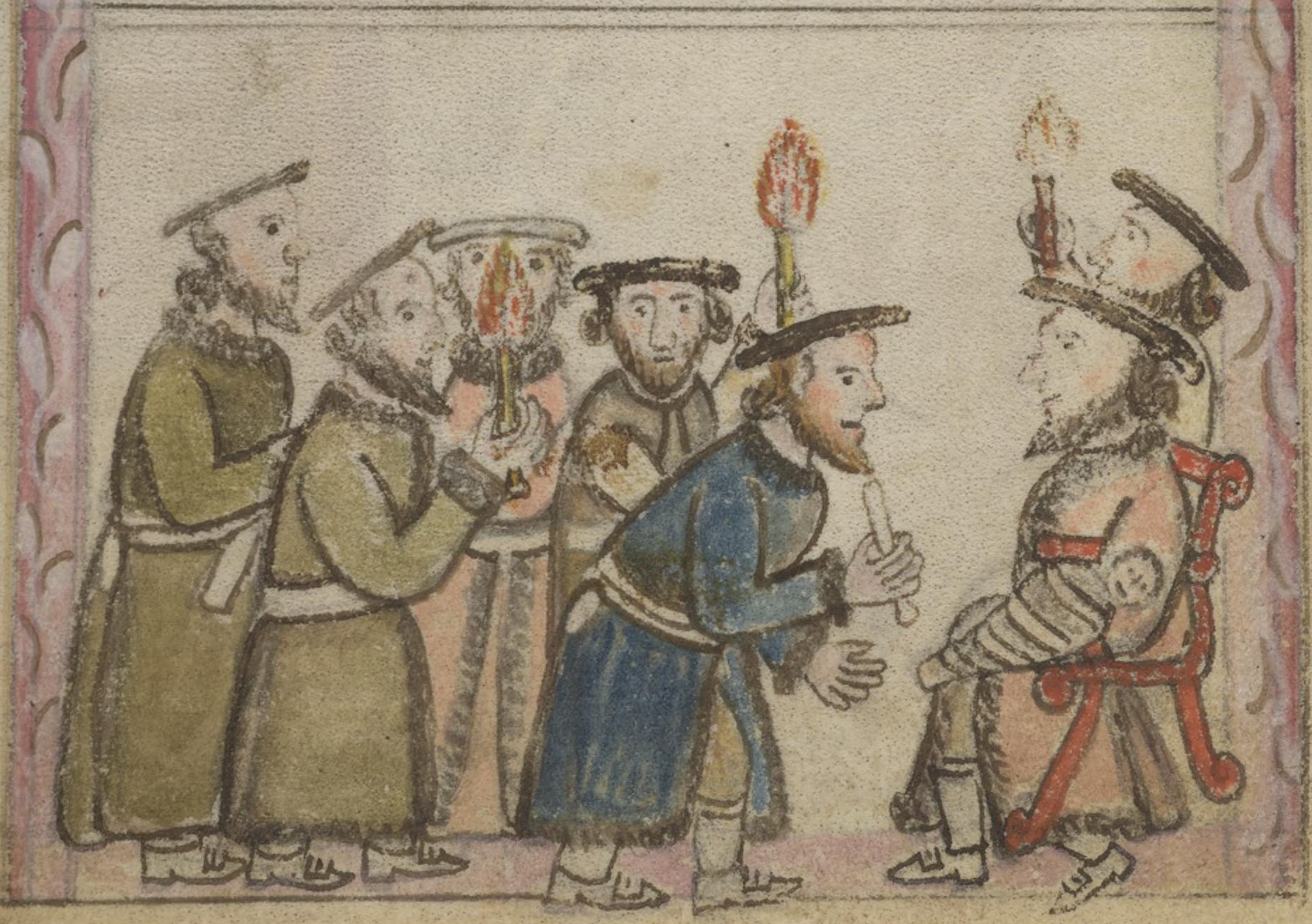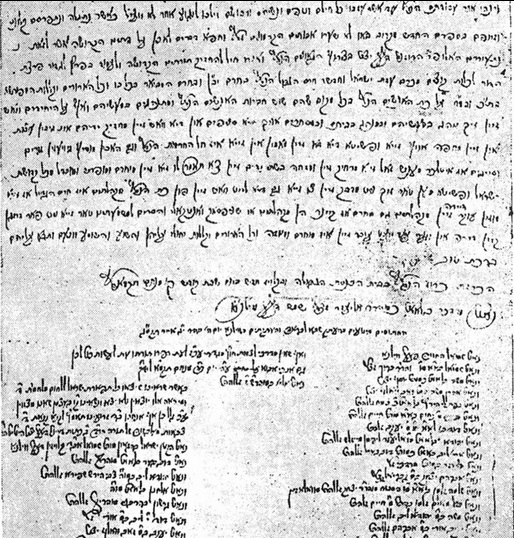|
Johannesburg Beth Din
The Johannesburg Beth Din is the Beth Din (Court of Jewish Law) of the Union of Orthodox Synagogues of South Africa. It serves Jews throughout South Africa and other countries on the continent. The focus of the Beth Din is on areas of family law, divorce and conversion, as well as adjudication of financial disputes. Other areas supervised by the Beth Din are: Circumcision, Stam, Mikvaot and Eruv An ''eruv'' (; , , also transliterated as ''eiruv'' or ''erub'', plural: ''eruvin'' or ''eruvim'') is a ritual ''halakhic'' enclosure made for the purpose of allowing activities which are normally Activities prohibited on Shabbat, prohibited ...in. In 2004, the High Court of South Africa upheld a cherem (excommunication edict) against a Johannesburg businessman because he refused to pay his former wife alimony as ordered by The Johannesburg Beth Din. The case, because of its potential implications with regard to the interaction of religious and state law, elicited global interest ... [...More Info...] [...Related Items...] OR: [Wikipedia] [Google] [Baidu] |
Union Of Orthodox Synagogues
The Union of Orthodox Synagogues (UOS) is the coordinating body of Orthodox Synagogues in South Africa. Activities * The UOS maintains a Beth Din, The Johannesburg Beth Din * The Office of the Chief Rabbi Dr. Warren Goldstein * The Kashrut Division supervises the production of kosher foodstuffs * Fights missionaries through ''Jews for Judaism'' * Publishes a magazine ''Jewish Tradition'' * Maintains a Community Development Division helping affiliated synagogues develop and grow. * Hosts The Sinai Indaba - an annual Torah convention featuring international Jewish thinkers and leaders. Chief Rabbis *Judah Leo Landau (1915–1942) *Louis Isaac Rabinowitz, Louis Rabinowitz (1945–1961) *Bernard M. Casper (1963–1987) *Cyril Harris (1988–2004) *Warren Goldstein (2005–) References Kosher food certification organizations Orthodox Judaism in South Africa {{SouthAfrica-synagogue-stub ... [...More Info...] [...Related Items...] OR: [Wikipedia] [Google] [Baidu] |
South Africa
South Africa, officially the Republic of South Africa (RSA), is the Southern Africa, southernmost country in Africa. Its Provinces of South Africa, nine provinces are bounded to the south by of coastline that stretches along the Atlantic Ocean, South Atlantic and Indian Ocean; to the north by the neighbouring countries of Namibia, Botswana, and Zimbabwe; to the east and northeast by Mozambique and Eswatini; and it encloses Lesotho. Covering an area of , the country has Demographics of South Africa, a population of over 64 million people. Pretoria is the administrative capital, while Cape Town, as the seat of Parliament of South Africa, Parliament, is the legislative capital, and Bloemfontein is regarded as the judicial capital. The largest, most populous city is Johannesburg, followed by Cape Town and Durban. Cradle of Humankind, Archaeological findings suggest that various hominid species existed in South Africa about 2.5 million years ago, and modern humans inhabited the ... [...More Info...] [...Related Items...] OR: [Wikipedia] [Google] [Baidu] |
Brit Milah
The ''brit milah'' (, , ; "Covenant (religion), covenant of circumcision") or ''bris'' (, ) is Religion and circumcision, the ceremony of circumcision in Judaism and Samaritanism, during which the foreskin is surgically removed. According to the Book of Genesis, God commanded the Patriarchs (Bible), biblical patriarch Abraham to be circumcised, an act to be followed by his descendants on the eighth day of life, symbolizing Covenant of the pieces, the covenant between God in Judaism, God and the Jewish people. Today, it is generally performed by a mohel on the eighth day after the infant's birth and is followed by a celebratory meal known as ''seudat mitzvah''. ''Brit Milah'' is considered among the 613 commandments, most important and central commandments in Judaism, and the rite has played a central role in Jewish history, the formation and history of Jewish culture, Jewish civilization. The Talmud, when discussing the importance of ''brit milah'', considers it equal to all ot ... [...More Info...] [...Related Items...] OR: [Wikipedia] [Google] [Baidu] |
Sofer
A sofer, sopher, sofer SeTaM, or sofer ST"M (, "scribe"; plural , ) is a Jewish scribe who can transcribe Sifrei Kodesh (holy scrolls), tefillin (phylacteries), Mezuzah, mezuzot (ST"M, , is an abbreviation of these three terms) and other religious writings. Description Soferim are men who are trained and permitted to transcribe Jewish texts according to the halacha, laws of Judaism: * Sefer torah, a complete copy of Torah read by Jewish men during prayer. * Tefillin, scrolls of Torah verses worn by Jewish adults during prayer. * Mezuzot, scrolls of Torah verses placed on the doors of Jewish households. collectively known as ST"M. By simple definition, soferim are copyists, but their religious role in Judaism is much more. Besides sifrei Torah, tefillin, and mezuzot, scribes are necessary to write the Five Megillot (scrolls of the Song of Songs, Book of Ruth, Book of Esther, Ecclesiastes, and Book of Lamentations), Nevi'im (the books of the prophets, used for reading the haf ... [...More Info...] [...Related Items...] OR: [Wikipedia] [Google] [Baidu] |
Mikveh
A mikveh or mikvah (, ''mikva'ot'', ''mikvot'', or (Ashkenazi Hebrew, Ashkenazic) ''mikves'', lit., "a collection") is a bath used for ritual washing in Judaism#Full-body immersion, ritual immersion in Judaism to achieve Tumah and taharah, ritual purity. In Orthodox Judaism, these regulations are steadfastly adhered to; consequently, the mikveh is central to an Orthodox Jewish community. Conservative Judaism also formally holds to the regulations. The existence of a mikveh is considered so important that, according to Halakha, halacha, a Jewish community is required to construct a kosher mikveh even before building a synagogue, and must go to the extreme of selling Torah scrolls, or even a synagogue if necessary, to provide funding for its construction. Etymology Formed from the Semitic root ק-ו-ה (''q-w-h'', "collect"). In the Hebrew Bible, the word is employed in the sense of "collection", including in the phrase מקוה המים (''miqwêh hammayim'', "collection of ... [...More Info...] [...Related Items...] OR: [Wikipedia] [Google] [Baidu] |
Eruv
An ''eruv'' (; , , also transliterated as ''eiruv'' or ''erub'', plural: ''eruvin'' or ''eruvim'') is a ritual ''halakhic'' enclosure made for the purpose of allowing activities which are normally Activities prohibited on Shabbat, prohibited on Shabbat (due to the prohibition of ''hotzaah mereshut lereshut''), specifically: carrying objects from a private domain to a semi-public domain (''carmelit''), and transporting objects four cubits or more within a semi-public domain. The enclosure is found within some Judaism, Jewish communities, especially Orthodox Judaism, Orthodox ones. An eruv accomplishes this by symbolically integrating a number of private properties and spaces such as streets and sidewalks into one larger "private domain" by surrounding it with ''Mechitza#Eruvin, mechitzas'', thereby avoiding restrictions of transferring between domains. Often a group constructing an eruv obtains a lease to the required land from a local government. An eruv allows Jews to carry ... [...More Info...] [...Related Items...] OR: [Wikipedia] [Google] [Baidu] |
Herem (censure)
''Herem'' ( ''ḥērem'') is the highest ecclesiastical censure in the Jewish community. It is the total exclusion of a person from the Jewish community. It is a form of shunning and is similar to ''vitandus'' "excommunication" in the Catholic Church. Cognate terms in other Semitic languages include the Arabic terms '' ḥarām'' "forbidden, taboo, off-limits, or immoral" and haram "set apart, sanctuary", and the Geʽez word ''ʿirm'' "accursed". Summary Although developed from the biblical ban, excommunication, as employed by the rabbis during Talmudic times and during the Middle Ages, became a rabbinic institution, the object of which was to preserve Jewish solidarity. A system of laws was gradually developed by rabbis, by means of which this power was limited, so that it became one of the modes of legal punishment by rabbinic courts. While it did not entirely lose its arbitrary character, since individuals were allowed to pronounce the ban of excommunication on particular ... [...More Info...] [...Related Items...] OR: [Wikipedia] [Google] [Baidu] |
Jewish Courts And Civil Law
Jews (, , ), or the Jewish people, are an ethnoreligious group and nation, originating from the Israelites of ancient Israel and Judah. They also traditionally adhere to Judaism. Jewish ethnicity, religion, and community are highly interrelated, as Judaism is their ethnic religion, though it is not practiced by all ethnic Jews. Despite this, religious Jews regard converts to Judaism as members of the Jewish nation, pursuant to the long-standing conversion process. The Israelites emerged from the pre-existing Canaanite peoples to establish Israel and Judah in the Southern Levant during the Iron Age. John Day (2005), ''In Search of Pre-Exilic Israel'', Bloomsbury Publishing, pp. 47.5 8'In this sense, the emergence of ancient Israel is viewed not as the cause of the demise of Canaanite culture but as its upshot'. Originally, Jews referred to the inhabitants of the kingdom of JudahCf. Marcus Jastrow's ''Dictionary of the Targumim, Talmud Babli, Talmud Yerushalmi and Mi ... [...More Info...] [...Related Items...] OR: [Wikipedia] [Google] [Baidu] |




